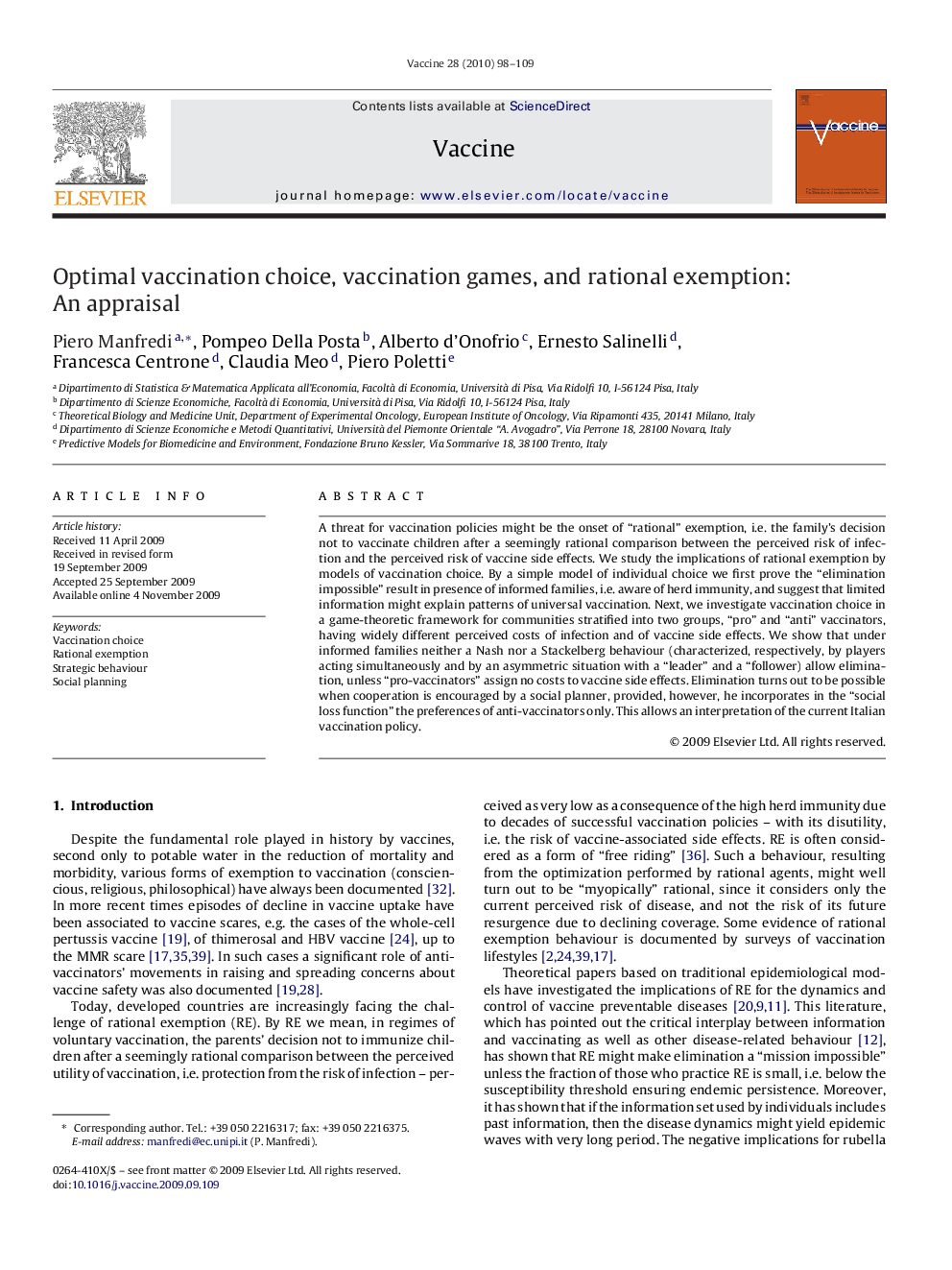| Article ID | Journal | Published Year | Pages | File Type |
|---|---|---|---|---|
| 2404226 | Vaccine | 2009 | 12 Pages |
A threat for vaccination policies might be the onset of “rational” exemption, i.e. the family's decision not to vaccinate children after a seemingly rational comparison between the perceived risk of infection and the perceived risk of vaccine side effects. We study the implications of rational exemption by models of vaccination choice. By a simple model of individual choice we first prove the “elimination impossible” result in presence of informed families, i.e. aware of herd immunity, and suggest that limited information might explain patterns of universal vaccination. Next, we investigate vaccination choice in a game-theoretic framework for communities stratified into two groups, “pro” and “anti” vaccinators, having widely different perceived costs of infection and of vaccine side effects. We show that under informed families neither a Nash nor a Stackelberg behaviour (characterized, respectively, by players acting simultaneously and by an asymmetric situation with a “leader” and a “follower) allow elimination, unless “pro-vaccinators” assign no costs to vaccine side effects. Elimination turns out to be possible when cooperation is encouraged by a social planner, provided, however, he incorporates in the “social loss function” the preferences of anti-vaccinators only. This allows an interpretation of the current Italian vaccination policy.
